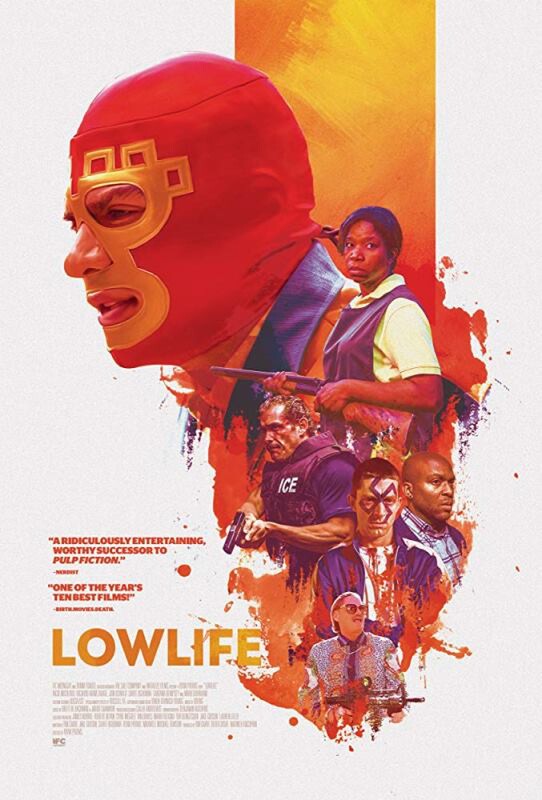Ryan Prows organ harvest, crime caper deliriously explores a seedy microcosm of Los Angeles.
Ryan Prows organ harvest, crime caper deliriously explores a seedy microcosm of Los Angeles. The action orbits around a motel manager, a corrupt Immigration and Customs Enforcement Officer (ICE), an ex-con with a swastika tattoo over his face, a coke fiend and a masked luchador-cum-hitman. It was born out of an anthology of short films Prows and his film buddies were compiling. But like Roger Avery and Quentin Tarantino did with Pulp Fiction before them, they decided to smash the composite parts together and make a feature instead.
As the title implies, Lowlife is a sordid tale about the kind of people most of us rarely come in contact with, let alone comprehend how they survive day to day. Top of the shop is Mark Burnham as the gregarious, yet imposing Teddy ‘Bear’ Haynes. In his knock off Versace silk shirts and nose perpetually dusted with Columbian marching powder this bad guy is the goggle-eyed life and soul of every scene he’s in. The way he opens up a body to remove the organs or shoots someone is just so normal to him he doesn’t think twice. Arguably his finest scene is an OTT slo-mo shoot out at the motel set to an opera tune. To those who may know of the gangly pop svengali Kim Fowley, imagine his criminal cousin.
More subtle, but no less absurd is El Monstruo - the mythical luchador played by Ricardo Adam Zarate. His introduction, talking to the spoilt brat, Gabriela, surrounded by pink party balloons is both jarring and menacing until her father arrives and you realise it’s him that’s in trouble. Prows use of blackouts at the point when El Monstruo is about to impart his ultraviolence. He goes into a confrontation, faints, and when he awakens his victim’s face has been caved in. It’s a surprisingly effective way of demonstrating his fighting prowess without having to orchestrate the entire sequence.
Lowlife is a bonkers movie that tonally won’t sit still. It deploys pitch-black humour for its laughs, but beneath the graphic violence – of which there is much – and the oblique nihilism there is, surprisingly, a warm, human heart to be found – and I don’t mean the harvested kind - before the final credits roll.
Stuart Wright

